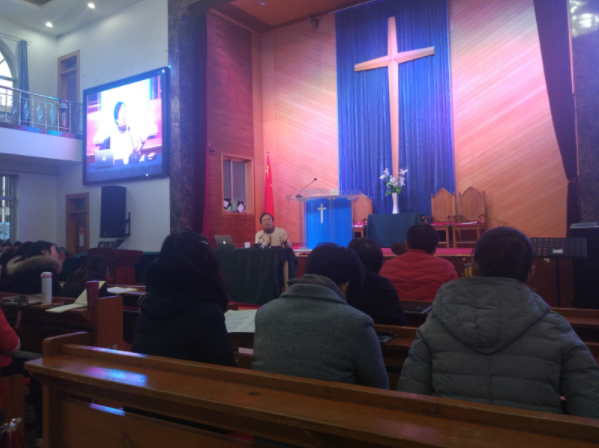A few days ago, Professor Liu Ping from the Department of Religious Studies of the School of Philosophy of Fudan University in Shanghai held a lecture on Bible translation in Shandong Theology Academy. The attendees included teachers and students from the academy, and the Director of the Shandong Christian Association, Pastor Wang Mengkun.
Professor Liu Ping began the lecture entitled "From the Bible in China to the Bible that belongs to China: Eight Major Events Of Bible Translation In China And Bible Sinicization" with the introduction of Christianity into China, according to the official website of Shandong China Christian Council." He talked about Chinese Bible translation of different eras and listed different versions of translated bibles such as the Roman/Chinese Catholic Chinese Bible, the Protestant Bible translation, the Harmonized Edition, the Protestant Mandarin translation, and other different Chinese dialect versions - almost 100 in all.
The professor also analyzed the translation of the Nestorian scriptures; the Torah of the Jews in Kaifeng city; the Scotch translation of scriptures from the Yuan Dynasty; the Basset version, the Robert Morrison version and the Marsman version; the Harmonized Edition; and the Sage Translation, a translation from the Orthodox Church. By examining the gains and losses made by these translated Bibles, Liu explored the progress of sinicization of the Bible.
Professor Liu felt that, through the efforts of missionaries and local Chinese, many translations and editions of the Bible have appeared. He also believed that Bible translation in China, itself, is a process of exchange and communication between the Chinese civilization and the Judaeo-Christian civilization. It is the fruit of mutual understanding and learning between the two civilizations. Among these different Bible versions, the "Harmonized Edition" and " the Sage Translation " are the greatest and the most outstanding results.
In order to promote the sinicization of Christianity, the Shandong Christian Council set up a platform named "Qilu Forum", to expand and enrich the views and minds of teachers and students of the seminary. This lecture was the thirteenth in the series of Qilu Theological Forums.
- Translated by Jake













